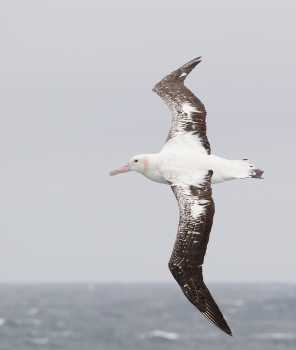Laurie Thiers and colleagues (Centre d’Études Biologiques de Chizé, Villiers en Bois, France) have published in the journal Polar Biology on utilizing at-sea distributions of marine top predators to choose a Marine Protected Area around the Kerguelen Islands.
The paper’s abstract follows:
“The French Kerguelen Archipelago represents an important breeding place for many species of marine top predators within the Southern Ocean, making the plateau hosting the archipelago and surrounding waters (CCAMLR area 58.5) a crucial area to design conservation measures. In this study, available tracking data from nine species of seabirds and marine mammals breeding at Kerguelen were analysed to define potential boundaries for a Marine Protected Area. Maps of time spent per square of each species were first used to describe high-use areas within the Kerguelen Plateau. Habitat models were then developed for four species (Black-browed albatross, Wandering albatross, King penguin and Antarctic fur seal) chosen on the basis of their contrasted foraging ecology and diet to represent the top predator community. Predictive models were then applied to the main colonies of the four species for which no tracking data were available to illustrate the most important feeding areas at the scale of the entire study zone. An area delineated by the central part of the plateau and its slopes appeared to be of great importance for the top predators’ community and would appropriately complete the limits of the existing Australian marine reserve of Heard and McDonald Islands.”

Wandering Albatross at sea, photograph by John Chardine
Reference:
Thiers, L. Delord, K., Bost, C.-A., Guinet, C. & Weimerskirch, H. 2016. Important marine sectors for the top predator community around Kerguelen Archipelago. Polar Biology DOI: 10.1007/s00300-016-1964-4.
John Cooper, ACAP Information Officer, 28 September 2016

 English
English  Français
Français  Español
Español